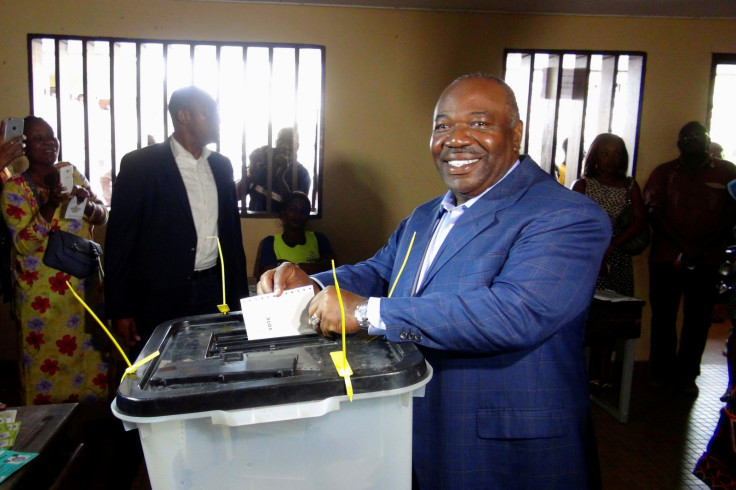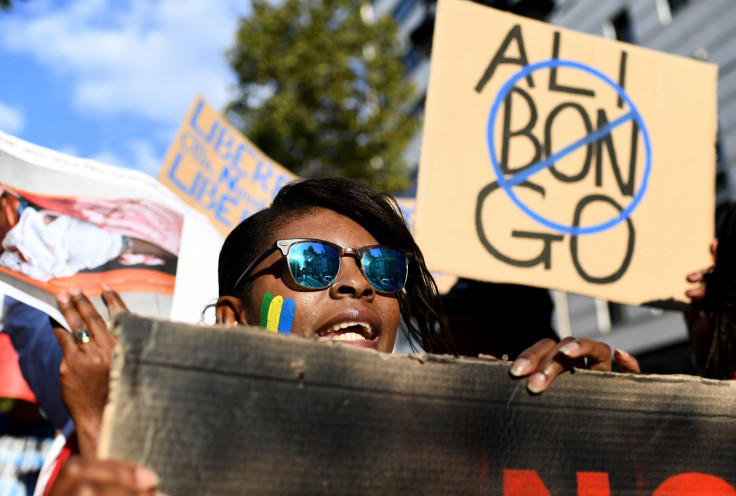Fears of unrest in Gabon as Ali Bongo to be sworn-in today after controversial election win
Opposition candidate Jean Ping claims he was cheated of victory and refuses to 'retreat'.

Concern has been growing that Ali Bongo's swear-in ceremony as president for a second seven-year term today (27 September) could prompt further unrest, days after the incumbent ruler's election victory was validated by the constitutional court.
Days of rioting, in which between three and 50 people died, followed the controversial re-election of Bongo, 57, in the 27 August vote. Bongo, whose family has been in power for nearly 50 years, was declared president until 2023.
Opposition candidate Jean Ping, 72, claimed he was cheated of victory when he accused the incumbent leader of vote rigging to secure a win and filed a request for a recount of the votes within the nation's Constitutional Court.
Unrest fears as Ping supporters reject ruling
However Ping's appeal was dismissed, and Bongo's controversial victory was confirmed on 24 September. Ping rejected the high court's ruling, adding the court had demonstrated "bias" in its "unjust" decision to uphold Bongo's victory.
Describing the decision as a "miscarriage of justice", Ping told his supporters: "I will not retreat. (As) president, clearly elected by the Gabonese people, I remain at your side to defend your vote and your sovereignty."
A revised narrow result
Recounts are not unprecedented in Gabon – the court ordered a recount that upheld Bongo's victory in 2009.
In its 24 September ruling on Bongo's win, the Constitutional Court partially changed the results.
While Bongo was initially awarded 49.8% of the vote – beating Ping's 48.2% – with wafer-thin margin of fewer than 6,000 votes, the court then said Bongo had taken 50.66% of the vote against 47.24% for Ping. The new results put Bongo's margin at 11,000.
The European Union, which had sent observers during the vote, questioned the integrity of the electoral process, explaining its monitoring mission was only given "very limited access" to the court review process.
The final result received a cool reception from the international community, including from the United Nations and African Union.
Former colonial ruler France said it regretted the ruling had not "lifted all the doubts" about the process.
The candidate's supporters also rejected Bongo's second term in office, sparking concerns the country could witness more unrest.
"We will not let Mr Ali Bongo lead Gabon for seven years. "We will ensure that Mr Ali Bongo leaves power," a resident of the capital Libreville was quoted as saying by AFP.
Bongo promises an 'inclusive' government
Bongo called for calm on 24 September and told Reuters the new government would include "all political parties".
Explaining the new government would "most likely" include Gabon's opposition leaders, the head of state did not reject the idea of reserving a place for Ping.
However, while Bongo promised a national dialogue, he excluded the option of international mediation.
Taking place against a backdrop of tension, the swearing-in ceremony is set to take place at the seafront presidential palace in Libreville, according to the Presidency, which did not confirm the time of the event.
Ping's spokesman, Jean Gaspard Ntoutoume Ayi, told AFP: "You don't get sworn in unceremoniously in secret".

© Copyright IBTimes 2025. All rights reserved.






















